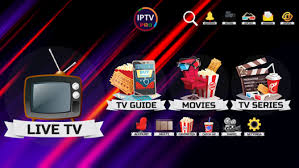In the fast-paced and dynamic world of medical sales training, mastering the art of selling requires more than just product knowledge—it demands a strategic approach, effective communication skills, and a deep understanding of the healthcare industry. With advancements in medical technology and an increasingly competitive market, medical sales professionals need comprehensive training to excel in their roles and drive success for both themselves and their organizations.
Understanding the Healthcare Landscape
One of the fundamental aspects of effective medical sales training is gaining a thorough understanding of the healthcare landscape. This includes familiarizing oneself with the latest trends, regulations, and challenges facing healthcare providers, institutions, and patients. By staying informed about industry developments, sales professionals can tailor their approach to meet the evolving needs of their clients and offer solutions that address specific pain points.
Product Knowledge Mastery
A cornerstone of successful medical sales training is ensuring that sales professionals possess in-depth knowledge of the products or services they represent. This includes understanding the features, benefits, and competitive advantages of each offering, as well as being able to effectively communicate this information to potential customers. Comprehensive product training empowers sales representatives to confidently engage with healthcare professionals, answer questions, overcome objections, and ultimately, close deals.
Developing Effective Communication Skills
Effective communication lies at the heart of successful medical sales interactions. Sales professionals must be able to articulate the value proposition of their products in a clear, concise, and compelling manner. This involves active listening to understand the needs and concerns of clients, asking insightful questions to uncover pain points, and presenting tailored solutions that address specific challenges. Moreover, honing interpersonal skills such as empathy, rapport-building, and persuasion can foster stronger relationships and trust with customers, ultimately leading to increased sales opportunities.
Leveraging Technology and Data Analytics
In today’s digital age, leveraging technology and data analytics can significantly enhance the effectiveness of medical sales efforts. Sales training programs should incorporate instruction on utilizing customer relationship management (CRM) software, online presentation tools, and other digital resources to streamline workflows, track interactions, and analyze sales data. By harnessing the power of technology, sales professionals can identify trends, forecast future sales opportunities, and optimize their strategies for maximum impact.
Continuous Learning and Professional Development
The field of medical sales is constantly evolving, with new products, technologies, and market dynamics shaping the industry landscape. As such, successful sales professionals recognize the importance of continuous learning and professional development. This may involve participating in ongoing training programs, attending industry conferences and seminars, pursuing relevant certifications, and seeking mentorship from seasoned experts. By investing in their own growth and development, sales professionals can stay ahead of the curve and remain competitive in the ever-changing healthcare marketplace.
Conclusion
In conclusion, mastering the art of medical sales training requires a multifaceted approach that encompasses industry knowledge, product expertise, communication skills, technological proficiency, and a commitment to lifelong learning. By providing comprehensive training programs that address these key areas, organizations can empower their sales teams to thrive in a challenging and dynamic environment, driving success and delivering value to healthcare providers and patients alike.



